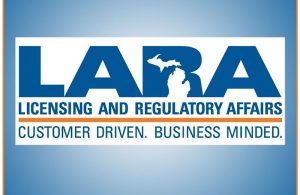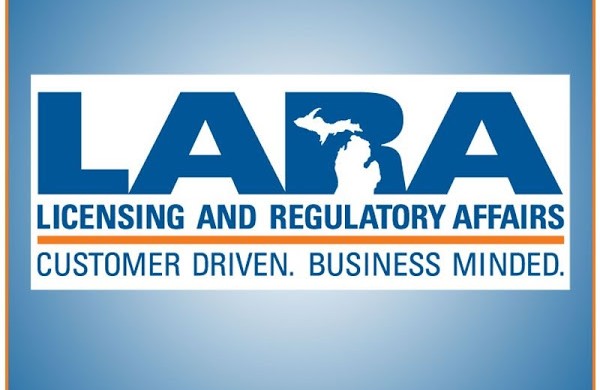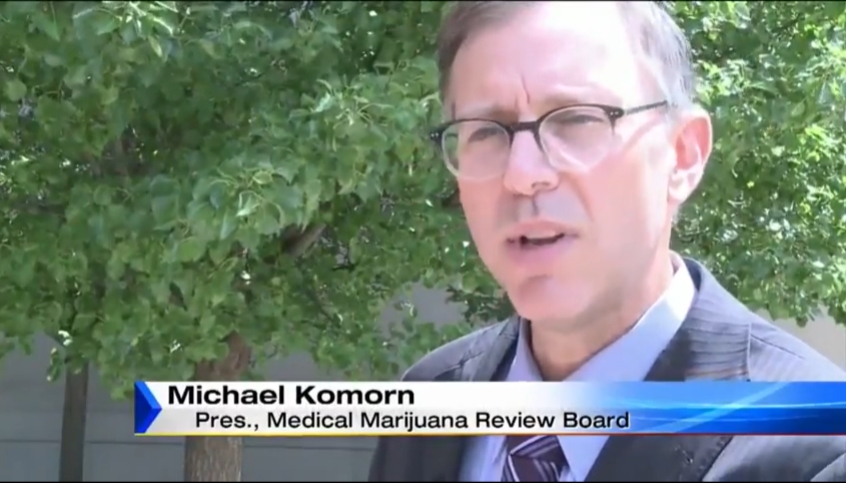
Feb 4, 2018 | Medical Marijuana, Medical Marijuana Attorney Michael Komorn, Michigan Medical Marijuana Act, News, Uncategorized
Michael Komorn is the leading expert attorney dedicated to the Michigan Medical Marihuana Facilities Licensing Act, the Michigan Medical Marihuana Act and the Marijuana Tracking Act.
Call Komorn Law PLLC today if you are interested in working in or with the Michigan medical marijuana business industry. We offer expert planning and advice for all MMFLA applicants, employees and related services including Certified Public Accountants and financial institutions.
Combined with Komorn Law PLLC’s expert criminal defense services, we can help you maximize profits, minimize risk and liabilities and ensure that you are in compliance with all of the laws, rules and regulations.
MMFLA Applications

Please note that these laws, rules and regulation forms change and are updated regularly. Always get the latest forms directly from LARA at http://www.michigan.gov/bmmr

Administrative Rule 72 says that before a marijuana plant is sold or transferred, a package tag must be affixed to the plant or plant container and enclosed with a tamper proof seal that includes all of the following information:
• Business or trade name, licensee number, and the RFID package tag assigned by the statewide monitoring system that is visible.
• Name of the strain.
• Date of harvest, if applicable.
• Seed strain, if applicable.
• Universal symbol, if applicable.
Administrative Rule 73 says before a marijuana product is sold or transferred to or by a provisioning center, the container, bag, or product holding the marijuana product must have a label and be sealed with all of the following information:
• The name of the licensee and the license number of the producer, including business or trade name, and tag or source number as assigned by the statewide monitoring system.
• The name of the licensee and the license number including business or trade name of licensee that packaged the product, if different from the processor of the marijuana product.
• The unique identification number for the package or the harvest, if applicable.
• Date of harvest, if applicable.
• Name of strain, if applicable.
• Net weight in United States customary and metric units.
• Concentration of THC and cannabidiol (CBD).
• Activation time expressed in words or through a pictogram.
• Name of the safety compliance facility that performed any test, any associated test batch number, and any test analysis date.
• The universal symbol for marijuana product published on the department’s
website.
• A warning that states all the following: “For use by registered qualifying patients
only. Keep out of reach of children. It is illegal to drive a motor vehicle while
under the influence of marijuana. National Poison Control Center 1-800-222-1222.
Licensees may continue to use any remaining versions of the previous Universal Symbol until they are completely used up.
Licensees are also permitted to choose which Universal Symbol version to use on a marijuana product until any remaining
versions of the previous Universal Symbol until they are completely used up.
- The educational session (video above) will include presentations on the following topics:
- BMMR Educational Session Power Point Presentation (PDF)
- Keith Lambert, the Director of the Bureau of Construction Codes, will discuss important items to know – and specific steps to follow – when designing and constructing medical marihuana facilities. (missing)
- Greg Kozak, an on-site Industrial Hygiene Consultant with Michigan Occupational Safety and Health (MIOSHA), will present an overview of the MIOSHA standards and regulations potentially impacting the medical cannabis industry in Michigan.
- Kevin Sehlmeyer, State Fire Marshal, and Brian William, Plan Review Specialist, will provide an overview of National Fire Protection Association standards.
- Brandi Branson-Boone, a departmental analyst in the Business Taxes Division of the Michigan Department of Treasury, will be assisting with navigation of the Michigan Treasury Online (MTO) – Treasury’s web services portal.
MMFLA Licensing Board meeting 4-19-2018
Michigan Medical Marihuana Facilities Licensing Board Meeting 5-3-2018
Michigan MEDICAL MARIHUANA LICENSING BOARD Meeting 5 31 2018
Michigan Medical Marijuana Licensing Board Meeting 7 12 2018
Michigan Medical Marihuana Licensing Board Meeting 8-9-2018
Michigan Medical Marihuana Licensing Board Meeting 9-10-2018
Michigan Medical Marihuana Licensing Board Meeting 10-18-2018
MMLB Medical Marihuana Licensing Board Meeting 10-29-2018 part 1
MMLB Medical Marihuana Licensing Board Meeting 10-29-2018 part 2
Michigan Medical Marihuana Licensing Board Meeting 11-08-2018
Michigan Medical Marihuana Licensing Board Meeting 12-07-2018
Michigan Medical MJ Facility Licensing Board Meeting December 21, 2018
LARA LIVE, BMMR video chat with BMMR Director Andrew Brisbo on CBD oil and Industrial Hemp or Medical Marijuana.
Medical Marihuana Licensing Board Minutes
December 21, 2018 – Unapproved
December 7, 2018
November 8, 2018
October 29, 2018
October 18, 2018
October 29, 2018 – Unapproved
October 18, 2018 – Unapproved
September 10, 2018
August 9, 2018
July 12, 2018
May 31, 2018
May 3, 2018
April 19, 2018
March 22, 2018
January 19, 2018
November 28, 2017
October 17, 2017
September 12, 2017
August 21, 2017
June 26, 2017
Also look for all MMMA reports here:
MMMA all government statistics, reports, grants and analysis

Nov 16, 2016 | Blog, News
DETROIT (AP) — Michigan sheriffs are paying for overtime and buying vests, guns, Tasers and vehicles with a little-known pot of state money that was set aside for medical marijuana enforcement.
They’re also leaving a lot of cash on the table, as only 18 of 83 counties this year applied for a slice of the $3 million.
“It’s mind-blowing to think they had this money out there and we had no clue about it,” said Sgt. James Every of the Ingham County sheriff’s office, which was eligible for $114,000 but didn’t apply.
Kent County, which is home to the western Michigan city of Grand Rapids, was eligible for $121,000 but also was unaware, Undersheriff Michelle Young said.
Advertisement
“We could absolutely use it for compliance and enforcement,” she said.
Michigan voters in 2008 approved the use of marijuana to treat certain illnesses. Nearly 225,000 people have state-issued cards, but the law has confused many and has led to significant legal disputes, including over how to obtain and store the drug. Large illegal growing operations have been busted around the state.
Since 2015, lawmakers have set aside money for sheriffs for medical marijuana enforcement and education. It’s administered by the Department of Licensing and Regulatory Affairs. Every county was eligible this year for a portion of the $3 million, based on the number of new cards or renewals in that county.
Seventeen counties spent $823,000 in 2016, according to a state report. The largest, Wayne and Oakland, spent a combined 67 percent of that figure.
Oakland spent $282,661, much of it on training and investigation overtime. The sheriff’s office bought a $31,000 van, a $30,000 pickup truck and a $6,800 cargo trailer.
“We didn’t have equipment,” Sheriff Mike Bouchard said. “We’d come across huge illegal grow operations — hundreds and hundreds of plants — and we’d have to rent trucks or trailers. … The grant helps alleviate some of the costs necessary to do these activities, but it’s just a sliver.”
According to the Oakland County Sheriff’s Office Sept. 1, 2016, submission to the state report, the department:
- Executed 59 search warrants,
- Executed 19 “knock and talks” with 13 found to be compliant, 2 had no evidence located and 4 found to be non-compliant.
- Initiated 19 educational contacts this year, with on criminal actions taken,
- Seized 2,961 marijuana plants — or 1,122 pounds — since Jan. 1.
Macomb County has spent about $100,000 over two years, much of it related to investigations and training. The sheriff’s office also bought laptops, vehicles and raid vests.
“I want the guys as protected as they can be,” Det. Sgt. Gary Wiegand said of vests.
Wayne County said it spent $171,618 on wages for dozens of officers conducting surveillance from January through September on 32 marijuana dispensaries in Detroit. More than 600 vehicles were stopped.
The grants were used in smaller counties, too. Sanilac spent $2,850 on five semi-automatic weapons. Antrim spent $479 on night vision binoculars. Cheboygan purchased Tasers.
Young, the Kent County undersheriff, believes the grants haven’t been promoted enough. The Department of Licensing and Regulatory Affairs declined to be interviewed.
“We have not been surprised by the participation rate as this was and still is a new program,” spokesman Michael Loepp said.
The deadline to apply for the next round of funding is Jan. 1.
Wiegand said Macomb County bought a trailer to haul and store illegal marijuana plants.
“We took more than 100 plants out of a person’s house,” he said. “It’s hard to put all that in the property room.”
One issue reported by the Oakland County Sheriff’s Office is that patients or caregivers are becoming better at cultivating marijuana and the plants are growing big enough to provide one pound of marijuana. With 12 plants per patient, they are going over the 2.5 ounces, the office reports.
“The MMMA does not provide a legal remedy for the patient or the caregiver to address this issue,” Oakland County Sheriff’s Lt. Brent Miles wrote.
Read the full state report online.
Read The State of Michigan Statistics and Report

Nov 14, 2016 | Blog, Medical Marijuana
2015 Michigan Medical Marihuana Statistics Document Link
The Department of Licensing and Regulatory Affairs (LARA) is responsible for the state’s regulatory environment and makes the delivery of services more efficient for consumers and business customers. LARA oversees the licensing and regulation of more than 1.2 million individuals and entities on an annual basis.

Oct 7, 2015 | Cannabis Science, Health Benefits of Marijuana, Medical Marijuana, News
Michigan Panel Votes 4-2 In Support Of Cannabis Use For Children With Autism, LARA Director Denies Petition.
Mike Zimmer, the Director of LARA in Michigan, has taken the futures of children and their families into his hands, only to crush them, insult them, and put all of their lives in danger. I was in attendance on July 31st 2015 at the last autism hearing in Lansing when the panel was finally given the chance to make an informed vote of 4-2 in favor of Autism being added to the list of qualifying conditions for medical marijuana.
I held our 4-year-old son Emery affectionately in my arms as I spoke in front of the panel of our experience over the last year and how it has changed us. We are able to give Emery cannabis because of his epilepsy diagnosis. I explained what it has done to reverse his autism impairment, to help him grow and to be happy, and for us to be able to live together in the same home. Before cannabis, we were going to have to live in separate homes on the same farmland together. Emery could not help but attack everyone around him constantly, including his younger siblings. Now, we happily spend entire days together and can hardly imagine the road we were headed down before Emery’s brain was allowed to work the way it is meant to because of cannabis.
We were at the hearing with other friends as well. These friends have been fighting this for over two years. They are parents, family, friends, attorneys, doctors, experts, and other activists. Parents with adult autistic children spoke to the panel as well. These parents have spent decades watching their children suffer as they refill endless bottles of dangerous pharmaceutical medications. They explained that from all of their research and everything they have seen, they believe that cannabis will work. They want to try it.
Parents like Dwight Zahringer have seen that other children using cannabis are not only experiencing changes in behavior and sleep patterns, but are also becoming verbal for the first time. Like every parent, these are things that he wants deeply for his own son, who is mostly non-verbal at the age of three. The original petitioner Lisa Smith’s son Noah, who has been non-verbal his whole life, has just recently started talking at the age of six because of cannabis. Parents caring for children with an autism diagnosis shouldn’t have to wait another day to try a proven safe and effective medicine that is non-toxic and has never caused a death. This is especially true when it’s helping so many people already.
Mike Zimmer denied the petition despite the panel’s recommendation to add it to the qualifying list of conditions.
The panel is specifically designated by LARA to make the decisions regarding new conditions that should qualify for protection under the MMMA. They reviewed over seventy-five peer-reviewed articles with over eight hundred pages of scientific information relating to the paediatric use of cannabis for autism. Parents should be able to choose this medicine for their autistic children. Adults who are suffering should be able to qualify as well. But instead of passing this decision through so that families can finally find relief, healing, and new positive experiences, Mike Zimmer denied it. From the decision:
“This lack of scientific evidence is concerning … the petition fails to acknowledge the direct impact on children… .”
And Lt. Governor Brian Calley, who has an autistic child of his own, weighed in by saying “there are neither sufficient studies nor scientific trials demonstrating its clinical impact to justify approval at this time.”
Maybe what these guys need is over eight hundred pages of information on the dangers of using anti-psychotics, anti-depressants, anti-insomnia, and anti-anxiety medications on children just to help them cope or to control dangerous behaviors.
Zimmer writes that children with autism “without associated seizure disorders” are already eligible under the language of the MMMA. He implies that if there are no seizures, then the autism is not severe, with no clear definition for what severe autism is.
Let’s help him with that: autism is a word with six letters. That’s it. But children with an autism diagnosis, whether it is considered severe or not, have to see doctors to get that diagnosis. And there are reasons for seeing the doctors. Parents can’t just walk into a dispensary and get an autism diagnosis and a medical card. Children with these conditions have a neurologist and sometimes many other doctors that they see regularly to monitor their growth, behaviors, and intelligence. It feels like what Mike Zimmer is really saying is that he doesn’t trust the many compassionate doctors, attorneys, parents, experts, social workers and other professionals who work in this field. These are the people who spend time with autistic children and their families.
They support this petition. Yet, he feels he has the right to make this decision for all of us.
He does not have that right.
He does not have the right to put a time limit on the lives of people or to force parents to separate siblings from each other when they can grow up together as friends, happily and peacefully. He doesn’t have the right to choose the number of children that are allowed to thrive and succeed in this world. In his Final Determination letter, he even makes it a point to rebut the claims that adding autism would cause a minimal increase in participation among minors.
276608146-Lara-Final-Determination-Medical-Marijuana-Autism
Attorney Michael Komorn suggests:
This guy is the head of LARA, the agency that licenses these physicians, and he relies upon the argument that the doctors that we license can’t be trusted and will abuse the system. To follow his logic, his licensed physicians will treat autistic patients who they are not qualified to treat … The solution is that he can regulate this through the physicians and lay down rules and regulations. Instead he shuts it down.
None of this matters, of course. Every child with an autism diagnosis will benefit from using cannabis. This is clearly outlined in all of the peer-reviewed information that was included with the petition even aside from the hundreds, if not thousands, of miraculous stories from all across the country. These are stories of autism impairment being reversed, sometimes seemingly overnight, just from using low doses of cannabis oil or other forms of cannabis. Let’s make sure these people have all the information they need to make this right for us!
THIS IS A CALL FOR ACTION!
California and D.C parents can already treat their children with cannabis for autism. This fight has been going on in Michigan for long enough now that a lot of people far and away are paying attention. When autism is added to the list of qualifying conditions in Michigan, our children will literally become the long-term studies that Mike Zimmer and other opponents of the petition claim that we need to have first.
Please take a few minutes out of your day and call LARA and the Governor’s office, or send out some emails or faxes. It really does mean a lot to everyone who works hard on this. It could make a huge difference in the outcome and aftermath of Zimmer’s final determination letter, which is included in the article. If you have any creative ideas or information that you feel could help, please tell us about it. Some websites that you can contact are listed below. If you have a success story you want to share, feel free to share in the comments below as well. This might be a game to these politicians and profiteers, but these are our lives! We deserve to create them ourselves!
Here is the contact information for Mike Zimmer, Brian Calley, and the Governor’s Office. Please help these guys understand!
Brian Calley
https://www.facebook.com/briancalley
(Governor’s Office)
PHONE: (517) 373-3400
PHONE: (517) 335-7858 – Constituent Services
FAX:(517) 335-6863
Mike Zimmer
Phone: (517) 373-3286
Email: zimmerm@michigan.gov
Licensing and Regulatory Affairs
P.O. Box 30004
Lansing, MI 48909
Phone: (517) 373-1820
Fax: (517) 373-2129
This is a link to “The Endocannabinoid System as it Relates to Autism” – Joe Stone; Christian Bogner, M.D. Its references list the peer-reviewed scientific articles relating to cannabis in the treatment of autism that were included in the petition to add autism to the list of qualifying conditions to use cannabis in Michigan:
The Endocannabinoid System as it Relates to Autism
http://www.collective-evolution.com/2015/10/06/michigan-panel-votes-4-2-in-support-of-cannabis-use-for-children-with-autism-lara-director-denies-petition/

Aug 30, 2015 | Blog, Criminal Defense Attorney Michael Komorn, Medical Marijuana Attorney Michael Komorn, Michigan Medical Marijuana Act, Michigan Medical Marijuana Criminal Defense Attorney Michael Komorn, News
“Allowing medical marijuana for those with autism was supposed to be the clinical trial,” Komorn said. “Instead, we’re going to have criminal trials.”
Lawyer slams decision to deny cannabis to autistic kids
The Detroit News Article
August 28, 2015 – Lansing — Michigan’s regulatory director on Thursday rejected the use of medical marijuana for the treatment of children with severe autism.
Michigan was poised to possibly become the first state to allow medical cannabis consumption for children with severe autism when the state’s Medical Marijuana Review Panel voted 4-2 earlier this month to recommend autism as a condition that qualifies for the drug.
Mike Zimmer, director of the Michigan Department of Licensing and Regulatory Affairs, said he rejected the request because of the lack of medical evidence showing marijuana helps with treating autism. He cited the opposition from the state’s chief medical examiner, Dr. Eden Wells.
“This lack of scientific evidence is more concerning when considering the broad scope of the petition, which does not limit medical marijuana treatment to overly severe cases of autism,” Zimmer said in his four-page letter.
Michael Komorn, a lawyer who filed the petition on behalf of a mother in southeast Michigan, called the decision disappointing and misguided. He said he’s considering seeking judicial review of the decision in Ingham County Circuit Court, where a judge’s prior ruling led to the review panel decision.
“He calls out the 55 parents and calls them all criminals. How dare you?” Komorn said of the impact of Zimmer’s decision on families seeking legalization of marijuana for autism treatment. “These parents are all in because their children are sick.”
Komorn said Zimmer’s concerns about a lack of controlled trials “is the red herring we’ve been fighting for a long time.”
Parents, he said, “are coming forward with anecdotal evidence” their children are being helped. The proper starting point for a clinical trial would be allowing them to continue, Komorn said.
Dr. David Crocker, a Kalamazoo physician who recommends cannabis use for patients with chronic pain, serves on the state’s medical marijuana board and questions its purpose if Zimmer can overrule Michigan’s marijuana “experts.”
“If you’re going to assemble a panel of experts for the purposes of determining this, why wouldn’t you go with their recommendation?” Crocker said. “I thought that our advice would be heeded in this case.”
But Lt. Gov. Brian Calley, who has a daughter with autism, supported the decision.
“While I fully support finding new treatment options, there are neither sufficient studies nor scientific trials demonstrating its clinical impact to justify approval at this time,” Calley said in a statement.
Paul Welday, head of a marijuana advocacy group seeking reforms of Michigan’s medical marijuana law, said Zimmer’s decision “has met with universal disdain by virtually everyone who has been watching this issue.”
Welday said his organization, the Michigan Responsibility Council, “will be talking with our attorneys/drafters to include both autism and Parkinson’s as eligible conditions” for medical marijuana in reforms it is proposing lawmakers adopt this fall. The organization wants to work with lawmakers on pending legislation that also would set up a regulatory regime governing medical marijuana policies.”
State law doesn’t appear to allow the use of marijuana oil or juice — two methods that advocates described as ways children could take medical marijuana, Zimmer said.
He also worried that allowing autistic children to use medical marijuana could cause an explosion of use with unknown health consequences, considering the prevalence of autism in Michigan.
The director added that autistic children who experience seizures because of their condition may already be eligible to use medical marijuana as a treatment under state law.
Supporters argued oil extracted from marijuana and swallowed has been effective in controlling extreme physical behavior by kids with severe autism.
But Michigan’s 2008 voter-initiated law did not explicitly legalize oil-based cannabis products. Supporters of marijuana for children with autism said the drug could be ingested orally instead.
“The reality is there are other ways of ingesting it besides the oil form that can be just as effective,” Crocker said. “I don’t think that the fact the oils are illegal should preclude autism from being a qualifying condition.”
The panel that initially approved the use of marijuana for autistic children was influenced by comments from some Detroit-area doctors, especially the head of pediatric neurology at Children’s Hospital of Michigan, and from parents desperate for relief.
The state panel in 2012 and 2014 rejected allowing medical marijuana for autism. It led to a court battle and a challenge by Attorney General Bill Schuette before the panel accepted the latest formal request in the spring.
Article by
Gary Heinlein and Chad Livengood, Detroit News Lansing Bureau August 28, 2015







